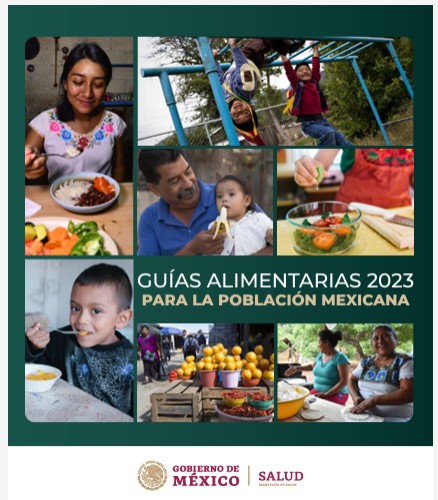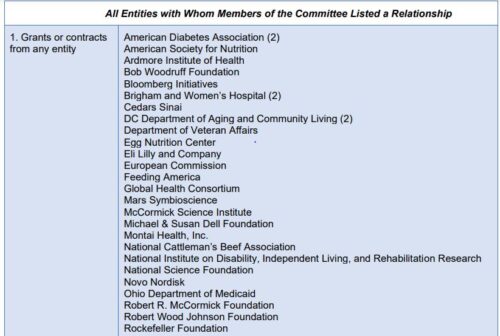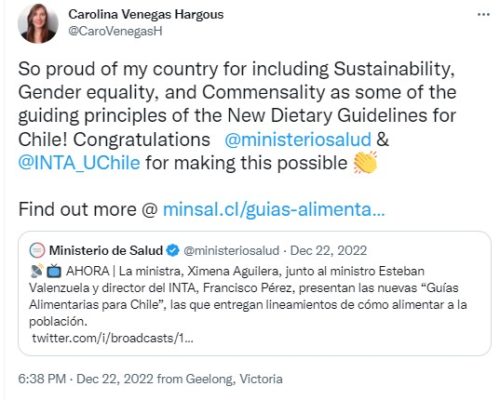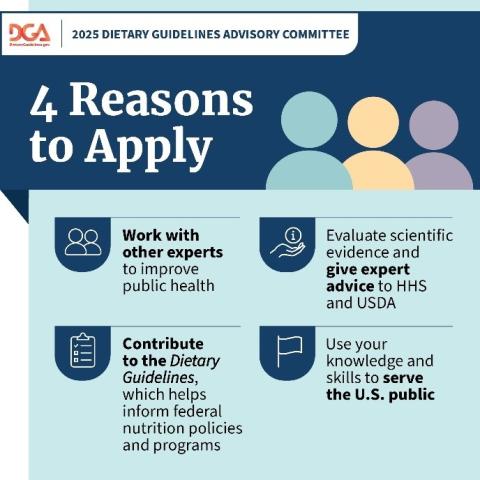US Right to Know reports on conflicts of interest in members of the 2025 Dietary Guidelines Advisory Committee
I received an emailed press release from Gary Ruskin at US Right to Know: Report: Nearly Half of Dietary Guidelines Advisory Committee Have Conflicts of Interest.
Nine out of 20 members of the Dietary Guidelines Advisory Committee have conflicts of interest with food, pharmaceutical, or weight loss companies or industry groups with a stake in the outcome of the guidelines, according to a new report published today by the nonprofit public health research group U.S. Right to Know. An additional four members had possible conflicts of interest. The report found that Abbott, Novo Nordisk, National Dairy Council, Eli Lilly, and Weight Watchers (WW) International had ties to two or more DGAC members.
My immediate reaction: Only 9? Last time, it was 19 out of 20.
Some background
The agencies responsible for the guidelines, HHS and USDA, issued aggregated disclosures of committee members relationships with industry. These treated real conflicts (Mars, Egg Nutrition Center, Novo Nordisk) with non-conflicts (National Science Foundation, Ohio Department of Medicaid) as if they were equivalent; they are not.
The sponsoring agencies have always argued that it is impossible to find nutrition experts without industry ties. I disagree. It’s just that people like me who are careful to avoid industry ties are considered too biased to serve on such committees (or so I’ve been told, repeatedly—I’ve not been asked to serve on a federal committee since Food Politics came out).
Do industry ties influence the report? This is less of a problem than it used to be. When I was on the DGAC in 1995, our committee set the research questions, did the research, wrote the research report, and wrote the actual Dietary Guidelines. The agencies did light editing.
That changed in 2010 (administration of Bush II) when the agencies took over writing the guidelines.
In 2020, the agencies wrote the research questions, and they did so again this round.
This means that the only thing left for the DGAC to do is to review the research on questions determined by the agencies.
What is US Right to Know?
This group has initiated and “co-authored 15 peer-reviewed public health studies revealing how the food and beverage industries and industry-funded groups try to influence public opinion, scientific research, public health conferences and government policies related to diet and nutrition.”
A reader, Leah Murphy, wrote me questioning USRTK’s funding (see Appendix D in the report).
“Funding for the report was provided by Feed the Truth, a 501c3 non-profit that is funded by the Lubetzky Family Foundation.”
Daniel Lubetzky is the founder of KIND, a food company. My point is that a food company funds the non-profit that funded the report. And that seems to undermine the credibility of their report and could qualify under their definition as a COI.
Ordinarily, I would agree that this could be a problem, but not in this instance. In a previous post on Feed the Truth, I say:
I was part of a team that suggested names for members of the group’s board. Once Lubetzky set up the funding, he has had nothing further to do with the group.
From what I’ve been told, that is still true. Feed the Truth does not have a website, in part because it is closing shop and not giving out more grants. You can read about its earlier stages in Influence Watch, Cause IQ, and Cision PR Newswire, but these are now out of date.
USRTK is doing important work and lots of it. It’s worth following it.
Resources
- The report: Full Disclosure: Assessing Conflicts of Interest of the 2025 Dietary Guidelines Advisory Committee.
- The Guardian: US nutrition panel’s ties to top food giants revealed in new report
- The BMJ: US dietary committee is plagued with “high risk conflicts of interest,” report finds.
- The New York Times: Food Industry Influence Could Cloud the U.S. Dietary Guidelines, a New Report Says (I’m quoted)






